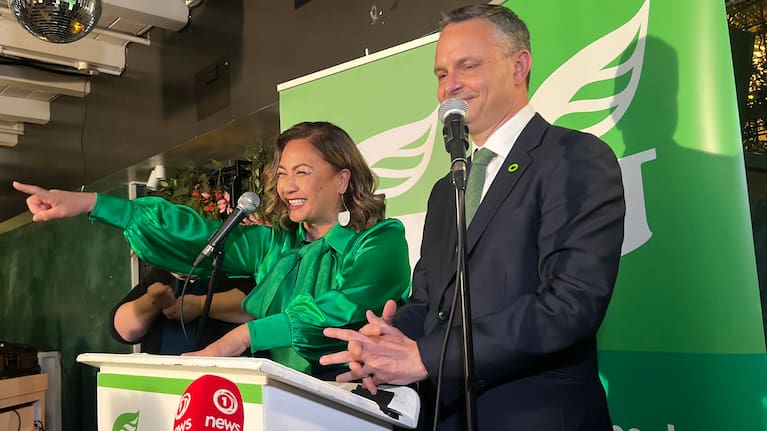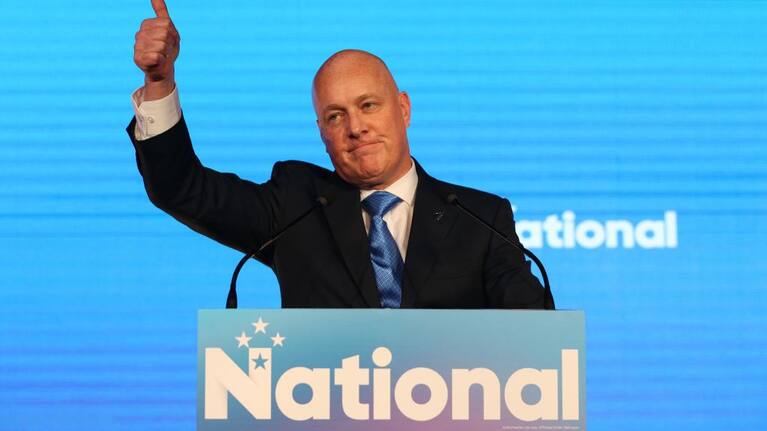Analysis: The Green Party’s stance on a coalition deal with National undervalues the potential of MMP, writes Q+A presenter Jack Tame.
Green Party MPs were triumphant on election night.
They celebrated alongside delighted party members, joyous in the knowledge that after special votes are tallied, the party could well record its highest-ever party vote result and its largest-ever caucus.
No one seemed too concerned that the party looks destined to languish in opposition for the foreseeable future.
No one seemed bothered that the likely next government has promised to reintroduce oil and gas exploration and scrap the Clean Car Discount, and that National’s likeliest support partner wants to completely tear up the Zero Carbon Act.
Electorate wins for the Greens in Auckland Central, Wellington Central, and Rongotai superseded any concerns about the wider election result.

Green Party MPs have been questioned ad nauseam about the possibility of reaching a support deal with National.
They’re always quick to nix the possibility. So acute is the party membership’s dislike for National, a so-called teal deal is dismissed out of hand. Green MPs have told me they believe such a deal would risk destroying the party.
Why not a teal deal?
But MPs are also on record as saying climate change presents an existential threat to humanity.
Existential.
It doesn’t get more grave than that.
And the immediate, effusive dismissal of a teal deal suggests the Green party membership is actually more concerned with maintaining the purity of their platform than the future of the planet.
After all, wouldn’t an existential crisis demand a party do everything possible in order to protect and promote climate policies?
If previous MMP governments are anything to go by, National could be in power for several terms. The Greens might not be close to the Cabinet benches until well past 2030.
Winston Peters’ conspiratorial social media post this week suggesting former Prime Minister Jacinda Ardern hid criticial information about the March 15 attack in Christchurch has served to remind all parties of New Zealand First’s potential for political unpredictability.
It looks extremely likely that when the final election results are published next week, National will need the support of both ACT and New Zealand First to form a government with a comfortable buffer of support.

But mathematically there are still other options.
The Greens could negotiate a deal with National with significant concessions on climate policy and pass it on to the party membership for a vote. On the preliminary results, such a deal would require only two parties.
It won’t happen, of course.
It’s not just that the Greens aren’t open to compromise. Publicly, they’re not even open to negotiations over a compromise.
It’s a position that plays well with the party’s base but undervalues the potential of MMP.






















SHARE ME